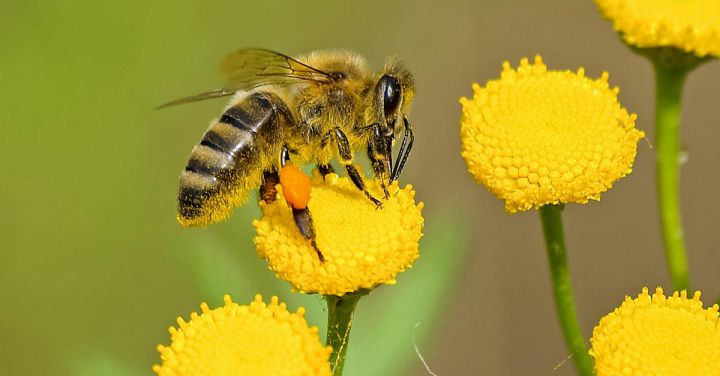What’s the Significance of Bee Pollination in the Wild?

Pollination is a vital process in the reproduction of flowering plants. It involves the transfer of pollen from the male part of a flower to the female part, resulting in the production of seeds. While wind and water can also aid in pollination, bees are considered the most effective and important pollinators in the wild. In fact, nearly 75% of all flowering plants depend on pollinators like bees for reproduction. In this article, we will explore the significance of bee pollination in the wild and understand why it is crucial for the survival of ecosystems.
The Relationship Between Bees and Flowers
Flowers have evolved to attract bees with their vibrant colors, enticing fragrances, and nectar rewards. Bees, in turn, have developed specialized adaptations to efficiently collect pollen and nectar from flowers. As they move from one flower to another, pollen grains stick to their hairy bodies. When they visit another flower, some of this pollen is transferred to the female reproductive organs, resulting in pollination.
Enhancing Biodiversity
Bee pollination plays a crucial role in enhancing biodiversity in the wild. When bees visit flowers to collect nectar and pollen, they inadvertently transfer pollen between plants of the same species. This cross-pollination leads to genetic diversity, which is essential for the survival and adaptation of plant populations. Through this process, bees contribute to the creation of new plant hybrids, increasing the overall biodiversity in ecosystems.
Food Production
Bees are not only vital for wild ecosystems but also for agricultural systems. Many crops, including fruits, vegetables, and nuts, depend on bee pollination for successful reproduction. In fact, it is estimated that bees contribute to the pollination of around one-third of the world’s food crops. Without bee pollination, the yields of these crops would be significantly reduced, leading to food shortages and economic losses.
Habitat Creation
Bees play a key role in creating habitats for other wildlife. As they visit flowers and collect nectar, bees inadvertently transfer pollen to different parts of their bodies. Some of this pollen is then deposited in the places where bees rest, such as their nests or hives. Over time, this pollen can accumulate, leading to the creation of microhabitats rich in nutrients and suitable for the growth of other plants. These microhabitats, in turn, provide food and shelter for other insects and animals, contributing to the overall biodiversity of the ecosystem.
Conservation Importance
The decline of bee populations worldwide has raised concerns about the conservation of these vital pollinators. Factors such as habitat loss, pesticide use, climate change, and diseases have all contributed to the decline in bee numbers. Without bees, many plant species would struggle to reproduce, leading to a decline in biodiversity and potentially affecting the entire food chain. Therefore, conserving bee populations and their habitats is crucial for the long-term sustainability of ecosystems.
In conclusion, bee pollination plays a significant role in the wild, enhancing biodiversity, contributing to food production, creating habitats, and promoting the overall health of ecosystems. The decline of bee populations highlights the importance of conservation efforts to protect these valuable pollinators. By understanding and appreciating the significance of bee pollination, we can work towards ensuring the survival and well-being of both bees and the diverse plant species that depend on them.
